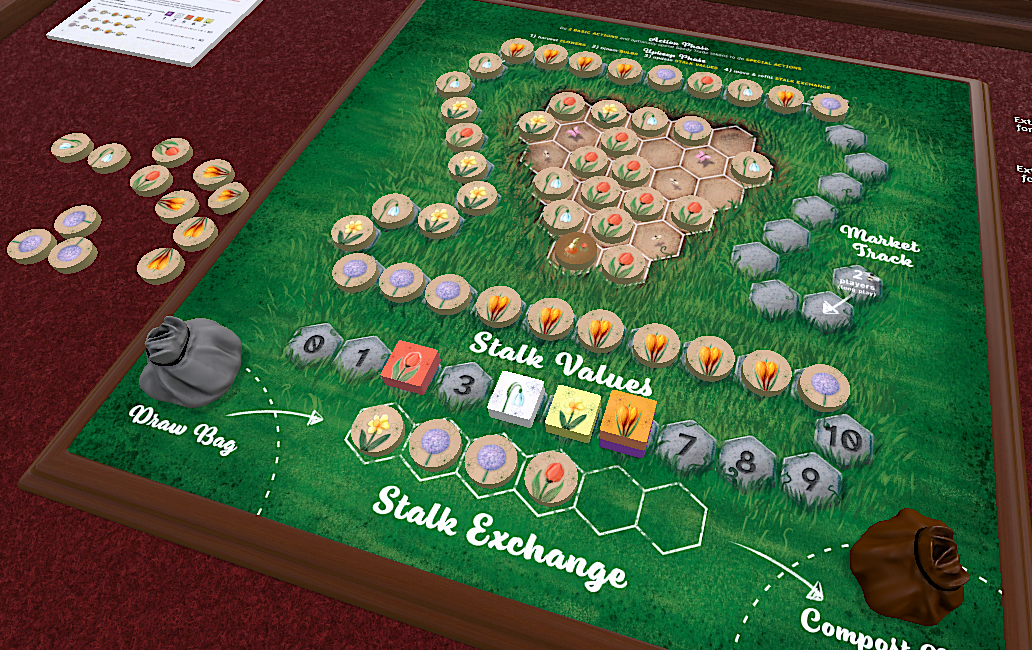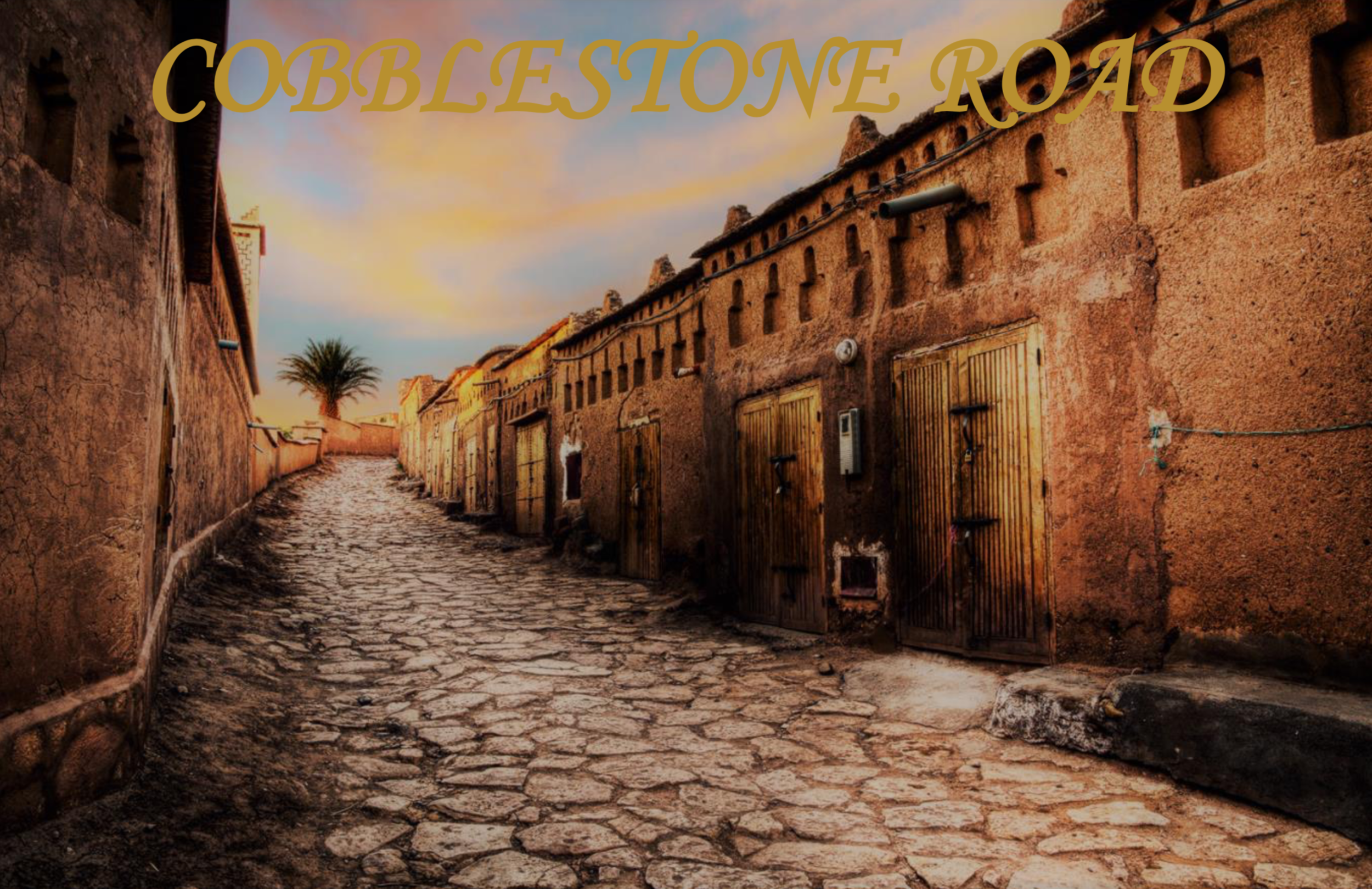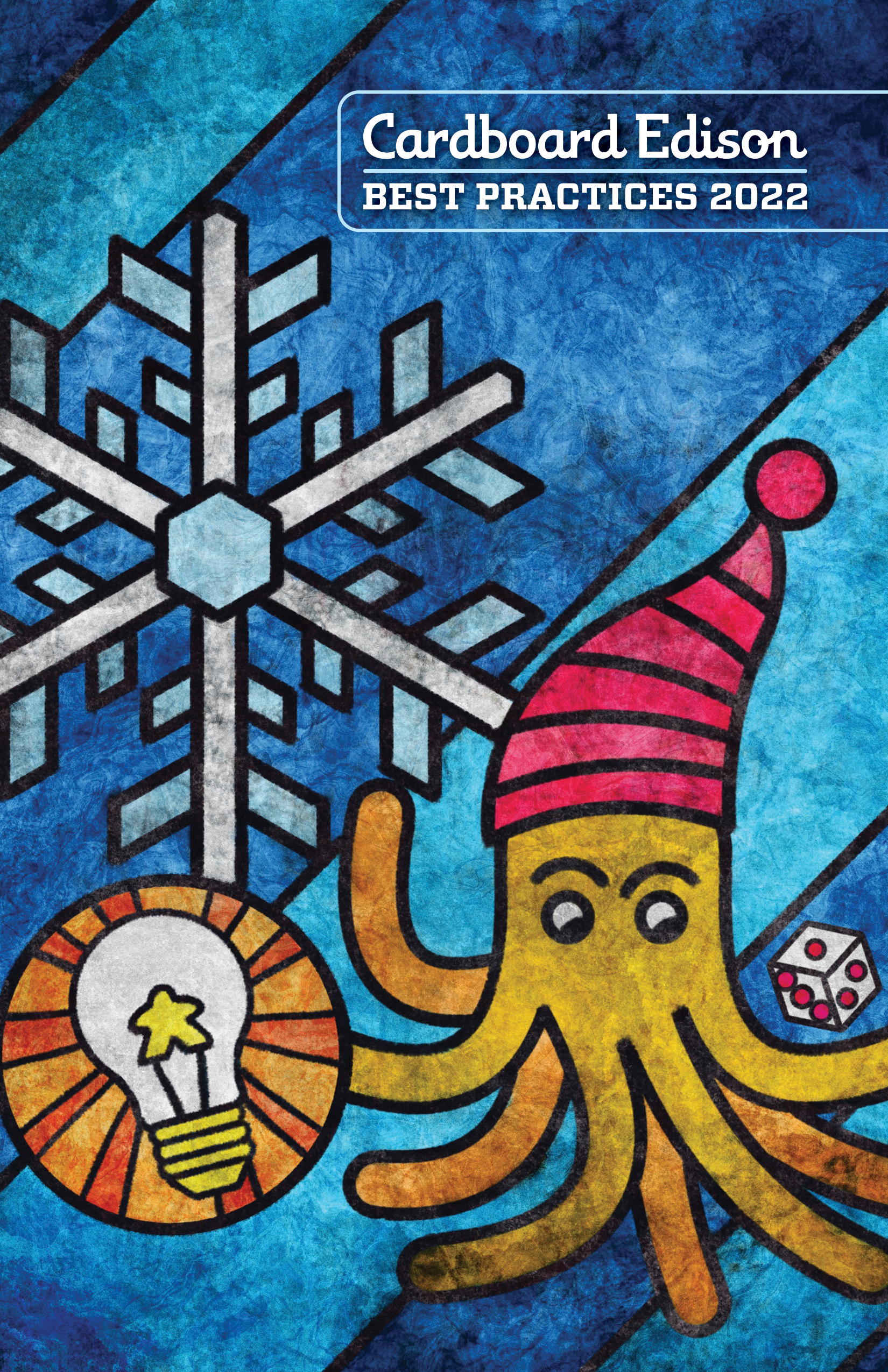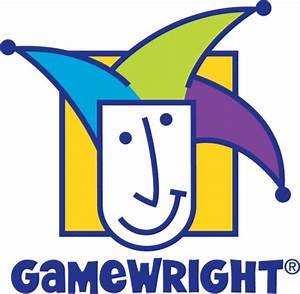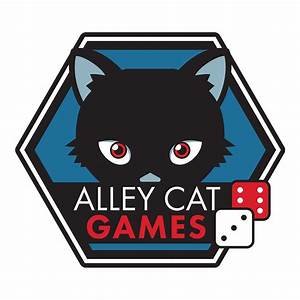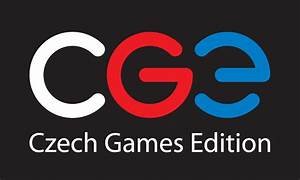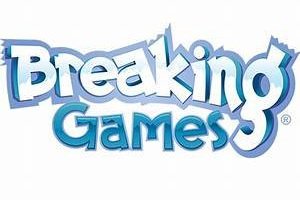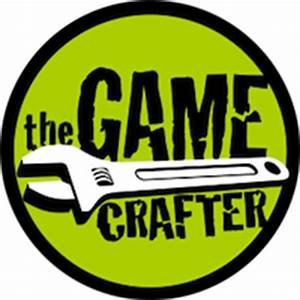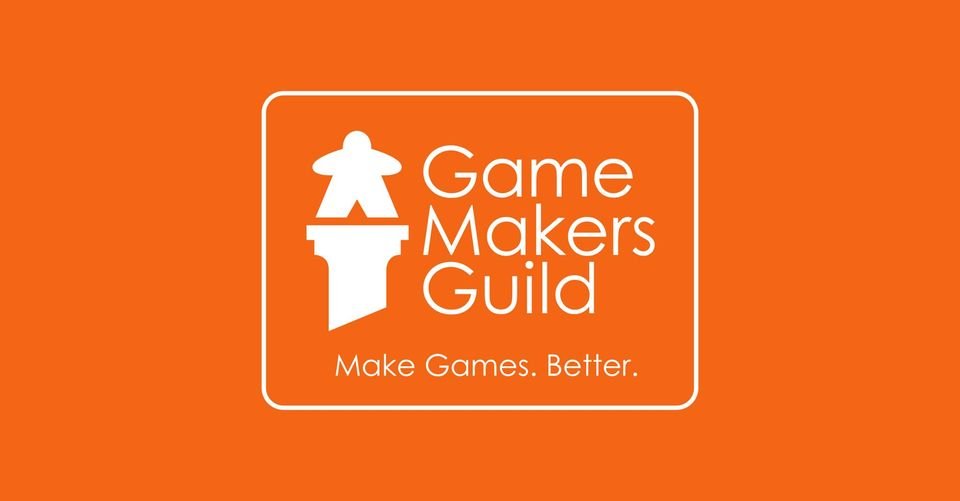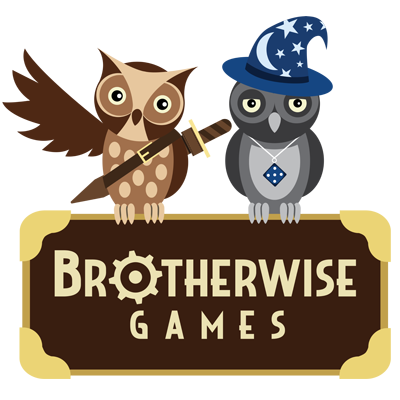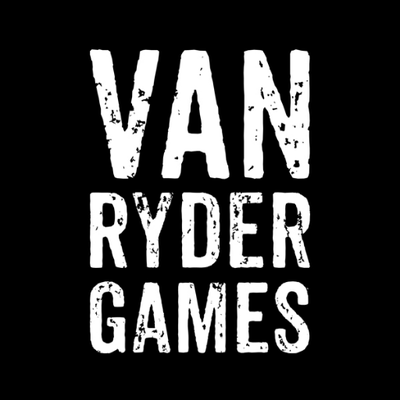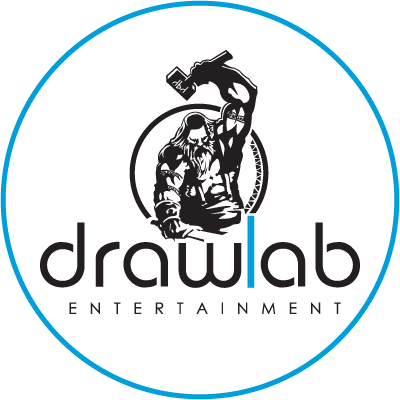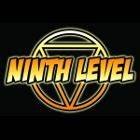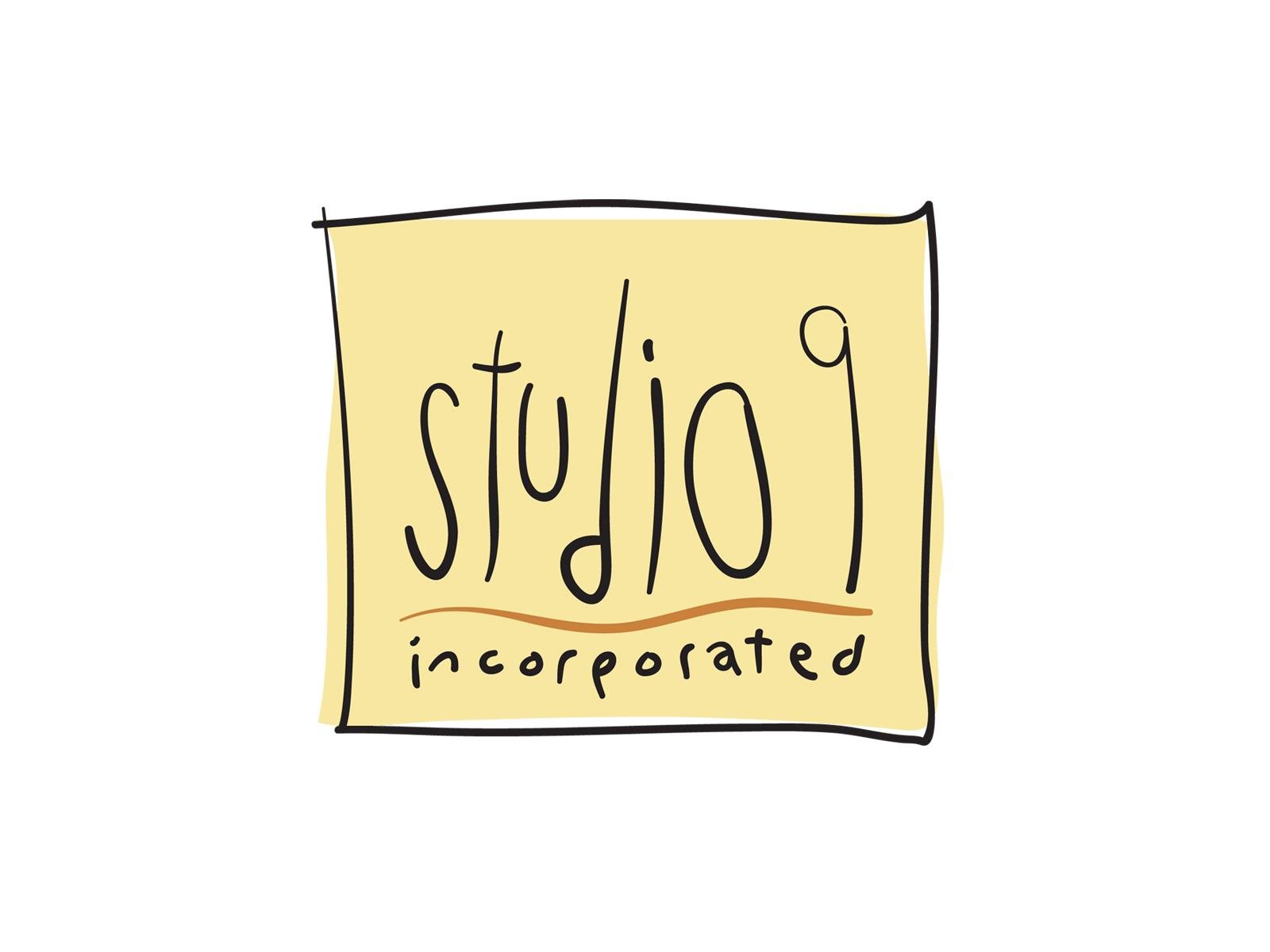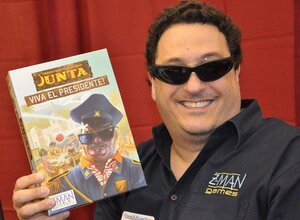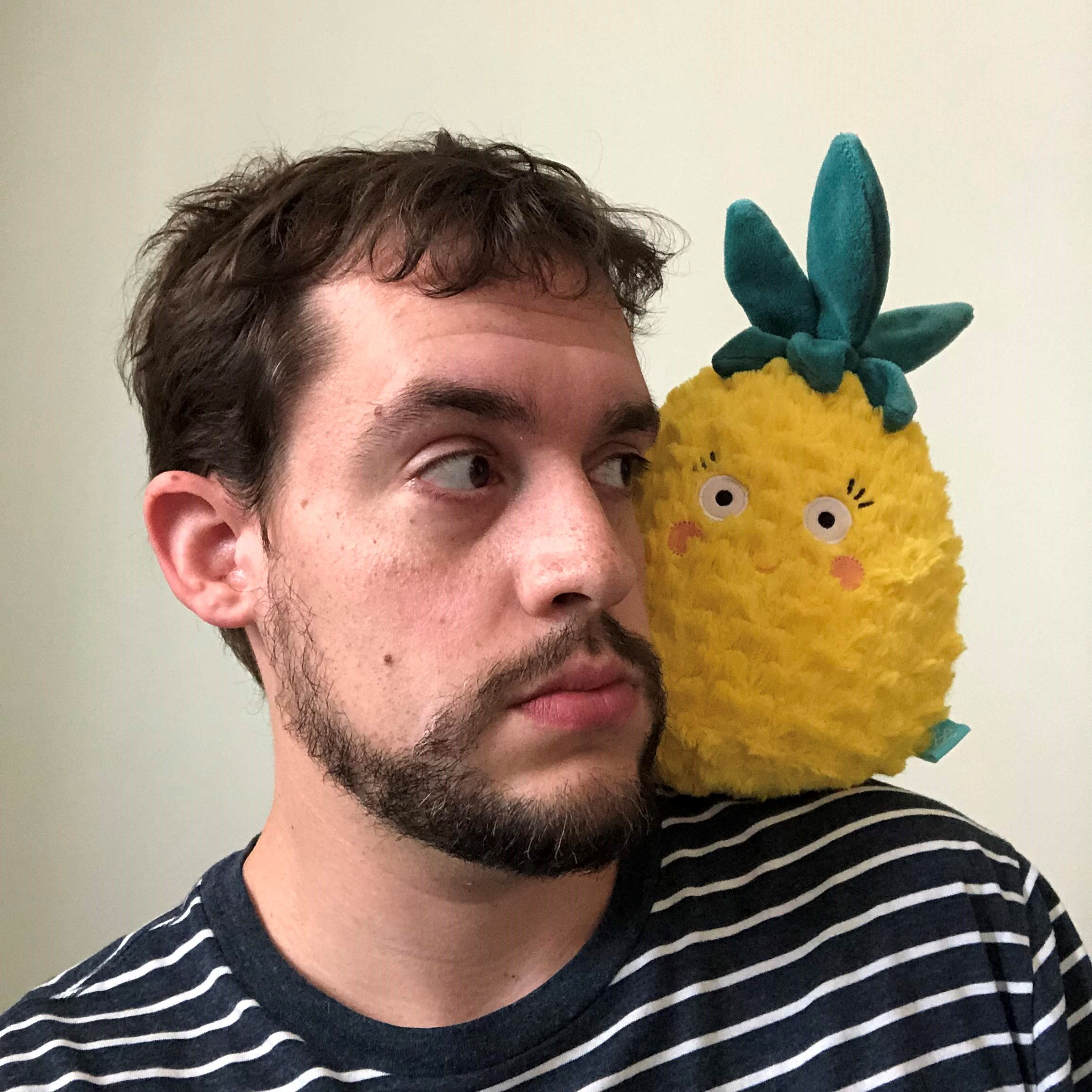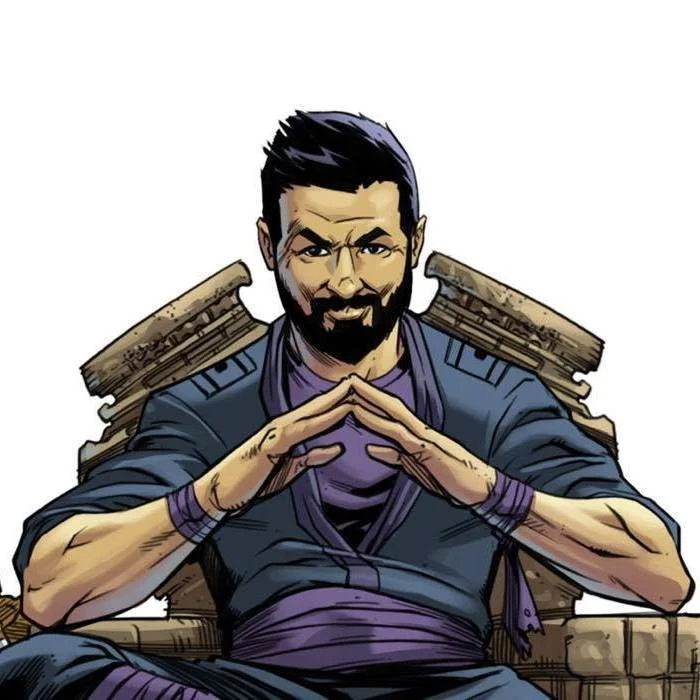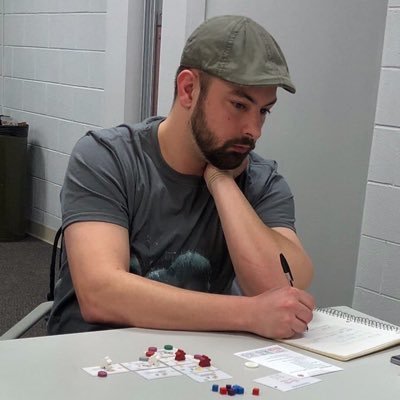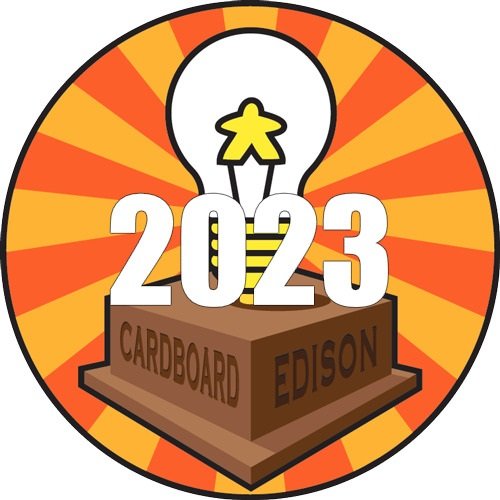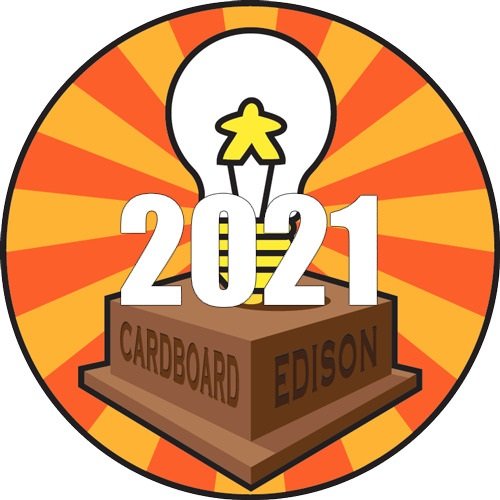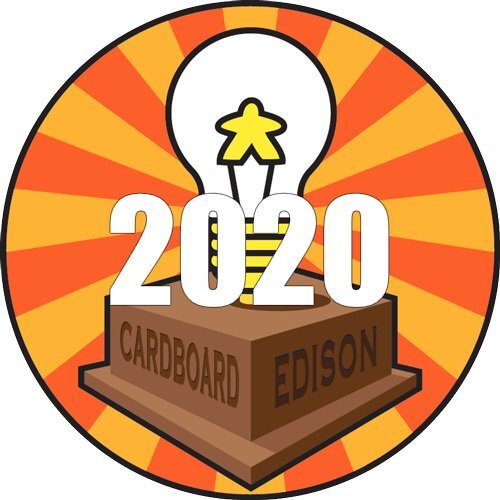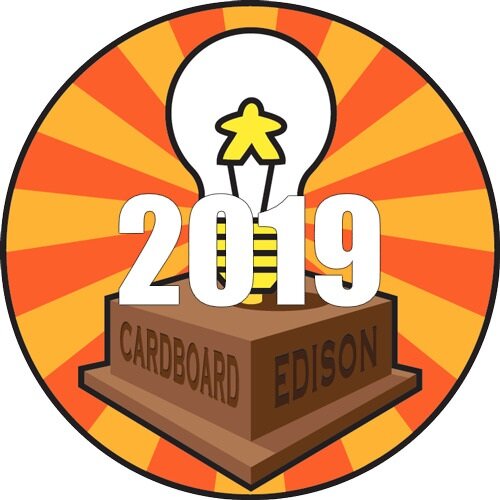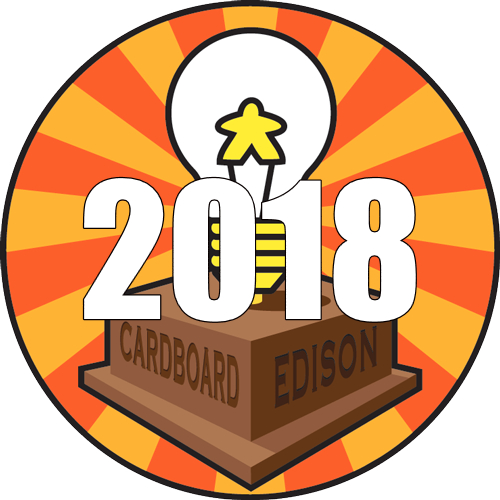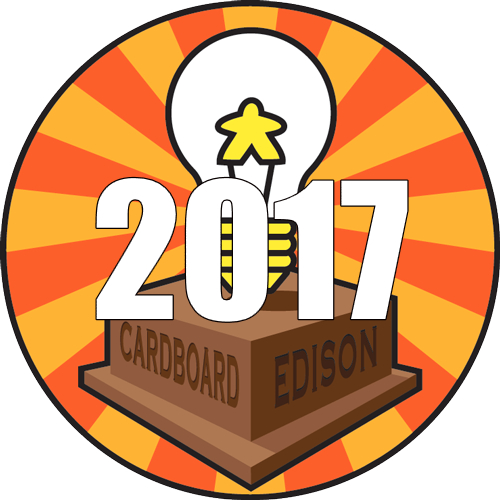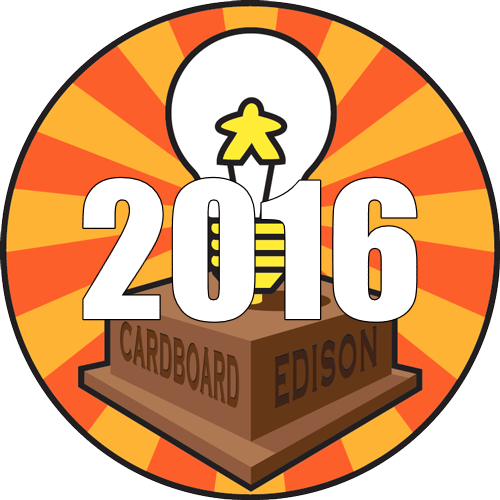The Cardboard Edison Award recognizes great unpublished board games
Announcing the winners of the 2022 Cardboard Edison Award!
First Place, Online: Capetalism
Capetalism
Designer: Christopher Chan | @xopherchan
In Capetalism, the players are investors in a community hedge fund. To win, they must grow the value of the flowers in their secret Stalk Portfolio. Stalk speculation comes to life through a freewheeling Go-like gardening mechanic where players plant and surround flowers in a central garden to raise their Stalk Values. But when all this manipulation crashes the Stalk Market, the player with the most valuable Stalk portfolio wins!
Judges’ comments on Capetalism:
“This game is the whole package: elegant game systems, a fun core puzzle in trying to figure out what flowers will end up being harvested when, and thematic-mechanical connections that make the nature theme intuitive and simple to grok.”
“The actions choices were clean. The powers were thoughtful. I enjoyed the flow of the game and the swinging nature of the economy. Well done!”
“The decision point of when to go from trying to force a color you want to be worth more to trying to make another color you want to lose be worth more is really interesting.”
“The stock market mechanic and end game were brilliant. This is really a solid and fun game.”
About the designer:
Chris Chan is an art director who grew up in Rochester, N.Y. He attended New York University and pursued playwriting for a time. Chris began his game design journey while working the late shift in a Greenwich Village chess store. He started exploring non-chess game designs while attending Virginia Commonwealth University for art direction and advertising. Chris' advertising career introduced him to the friends with whom he would co-design his first published game, The Night Cage by Smirk & Dagger Games. That process also introduced Chris to the hobby game community which he's thrilled to be a part of now. When he isn't designing board games, Chris is probably out running or taking photos.
First Place, In-Person: Roux Mates
Roux Mates
Designer: David Masnato | @DavidMasnato
Roux Mates is a game of companionship, cooking, and cohabitation where 2-5 players compete to determine who’s the most popular roommate by cooking meals for their friends and doing chores around the kitchen.
Judges’ comments on Roux Mates:
“Theme and mechanisms are tightly linked. I felt the fun chaos of roomies hanging out and doing things together and for each other.”
“The two-sided action cards create delicious tension each turn. There are great moments where things get backed up at the various bottlenecks, and there are even fun little stories created by the interplay of the actions, friends, and board states.”
“I like that chores are part of the actions: doing chores slows down what you intend to do, but gains you benefits and ignoring them causes interesting buildups.”
“The theme is incredibly well represented in the mechanisms and the idea of doing chores bringing joy to the house gives me the warm and fuzzies. Take my money!”
About the designer:
David Masnato is a community manager, graphic designer, and co-organizer of Protospiel Online. When he's not making or playing games, David loves to cook, crochet, and listen to music. He's also the proud parent of an enormous orange cat named Baran. Roux Mates is the result of over four years of hard work, love, and support from family, friends, and the incredible game design community.
Runner-Up, Online Track: Tri-Star Racers
Designer: Glenn Cotter | @headcraftedpix
In Tri-Star Racers, you are the captain of a spaceship racing team competing in the Tri-Star Race Championship. As you race, you’ll discover new crystals to fuel your ships. Place crystals, make matches, and use special powers to propel your team to victory! The winner is the player whose entire team of ships is the farthest on the race track once one player crosses the finish line.
Runner-Up, In-Person Track: Island Of Gems
Designer: Aaron Kempkes
In Island of Gems, you are decorating the beaches of the Gem Islands to entice visiting tourists. Enlist the help of magical seahorses that give you extra victory points, and encounter scuba divers that allow you to alter the board.
Finalists: Online Track
ARKitects
Designer: Marek Tupy | @marek_tupy
In this polyomino game for 2-5 players, sail the recently flooded world and salvage pieces of wreckage to build the best multi-level habitat for humanity's last survivors.
Bioma
Designer: Fernando Cunha | @ofedasunha
Bioma is a 30-minute strategic game for 2-4 players where you control animals on a shared grid. Use predators to catch prey and avoid laying the ground for the opponent’s turn. Move animals under the foliage and make surprise attacks in a game of quick turns and simple actions.
Clima
Designer: Carlos Flores | @carlosfloreslen
Drive the green revolution and stop impending climate doom in Clima, a science-based co-op game about solving the climate crisis. Clima is a light-medium bag-building and engine-building game for 2 to 5 players. Created by an experienced climate change expert, Clima will make you feel the thrill of the green revolution and the dread of climate disaster.
Inheritance: Five Crowns
Designer: Peter Reifenstein
The king is dead, and his passing has left piles of wealth and two ambitious heirs eager to seize the throne. In this fast-paced 2-player hand-management game, compete with your opponent to best use the riches of the kingdom and prove yourself worthy to be the next ruler!
Oblivion Galaxy
Designer: Conan Daly
Oblivion Galaxy is a game about the economics of trying to escape a dying galaxy, and the hard choices that must be made in desperate situations. You are the leader of a prophetic cult in a sci-fi far future, who has foreseen the approaching apocalypse. You must construct the means to escape the coming doom!
Uinta
Designer: Joshua Bowman
Uinta is a 1-4 player polyomino game in which players take responsibility for a section of forest that has gone through a controlled burn. They are tasked with managing the growth of the forest and removing ash to reveal landscapes to help bring the animals that have fled the fire back to the mountains. Throughout the game, players will draft, place, and arrange polyomino tiles to encourage growth and help attract animals back to their section.
Umbrella Sky
Designer: Amir Salamati | @roomizgames
Umbrella Sky is a tile-laying, city-beautifying game in which players compete to decorate their street and get the attention of tourists by hanging beautiful umbrellas, colorful banners, and bright light bulbs!
Word Stax
Designer: D. Teuber
In Word Stax, players build stacks of cards, trying to find words that fit an increasing number of conditions. Each card in hand gives players two choices of conditions to add to the conditions on the word stax in play. The more conditions, the more the stax are worth. If they can think of a word or phrase that fits all the conditions, they can claim the stack and all its points…for now!
Finalists: In-Person Track
Cobblestone Road
Designer: Mariëtte Swart
Cobblestone Road is a light- to medium-weight game that uses dice to play mancala. Players are spice merchants walking along a cobblestone road with a rickety wagon, dropping off wares as they walk along the cobblestone road. Sometimes they also pick wares up that others have dropped. Spice merchants have to sell their spices according to customers’ specific orders, and the richest merchant after eight rounds is the winner.
Double Jeopardy
Designer: Joel Kennedy
Double Jeopardy is a fully cooperative deduction game for 2-4 detectives with a crucial twist: The cards in your hand are double-sided.
Kingdom Come
Designer: William Augustus Griffin Sr.
Africa is the cradle of civilization and home to the greatest kingdoms in the world! Lead your kingdom to supremacy through your prowess in tactical movement, the market, kingdom management, and military might.
Lost: Relic Hunters
Designer: TAM | @TamAtPlay
You are a treasure hunter searching for lost relics. Lost is a book-based, light deduction game that can be played around a coffee table or over zoom—all you need is a pencil. Each hunter has a map marked with the location of the relics, and you ask questions to find out what your competitors know.
Patriots: Raid of 1775
Designer: Arthur Weston | @kingdomslwngame
Patriots: Raid of 1775 is a game of set collection, simultaneous play, and trading. Players take on the role of colonial militias during the American Revolutionary War with a mission to raid a British Fort of supplies for General George Washington and the Continental Army. The Militia with the best inventory of raided supplies earns the most currency for their colony and wins the game.
Pentacular Word Circus
Designer: Emily Willix
Pentacular Word Circus is a cooperative and chaotic real-time game about building words at the circus. In contrast to more serious word games, Pentacular Word Circus turns spelling into a silly yet strategic 20-minute party game where everyone wins (or loses) together.
Providence
Designers: Alex Cutler & Peter C. Hayward | @alexcutler89 @peterchayward
A heavy worker-placement game about Providence: both the city in Rhode Island, and the religious concept.
Underleaf
Designer: Chris Bartlett
Underleaf is a game about the competition for light amongst flowering plants. Each player has unique advantages, and must collect and defend sunlight through careful placement of leaves. Players must balance their spending resources on leaves to capture more light or on new flowers to attract the most pollinators to win the game.
Timeline for the 2022 Cardboard Edison Award
January 1: submissions open
January 31: submissions close
early February: first-round judging
late February: finalists announced
March 30: finalist prototypes due
April-May: finalist judging
June: winners announced
Cardboard Edison Best Practices 2022
It’s here! Our annual Cardboard Edison Best Practices booklet, filled with board game design tips and resources, is now available! As always, it’s jam-packed with articles and interviews covering every step of the board game design process!
In this year’s book, you'll find:
tips from past winners of the Cardboard Edison Award
a sample template script for your game’s 5-minute pitch
designing a game with a multilingual release in mind
the difference between how designers, developers, and publishers see games
a board game design checklist
and LOTS more! Check it out!
Sponsors for the 2022 Cardboard Edison Award
Alpha Player Sponsors
Game Master Sponsor
Meeple Sponsors
Judges for the 2022 Cardboard Edison Award
Click for bios…
See the results from previous years’ Cardboard Edison Award
Rules for the 2022 Cardboard Edison Award
Submissions:
Once again this year, submissions will be accepted in two tracks: online judging and in-person judging. Designers must select the track they deem most appropriate for their game.
Submissions must include a brief description of the game, a video overview, and a rules document. See the submissions page for full guidelines and submission fee information.
Judging process:
Submissions will go through two rounds of judging.
First-round submissions will be judged based on engagement, originality of theme, and originality of mechanics. Finalists also will be judged based on engagement, smoothness of play, and fit for target audience.
Finalists will need to mail us a physical prototype for final in-person judging, or provide a mod via Tabletop Simulator or Tabletopia for online judging.
All submissions will receive pitch feedback from the judges. Finalists will receive full feedback from the judges.
One design from each track will be chosen as the winner, at the judges' discretion.
Restrictions:
To be eligible for the award, designs must not be publicly available through any retail, secondary, or print-on-demand market, including Kickstarter, before July 2022.
Designs may not be licensed to a publisher during the period of the award. Additionally, we ask that designers refrain from holding licensing discussions with publishers about any submitted design while it is being evaluated for the award.
Designers must be 18 years or older to enter. Judges are not eligible to enter.
Designs must be original works that do not infringe on any intellectual property.
Board, card, and dice games are eligible. Sorry, no RPGs or videogames.
Designs should be complete and playtested before being submitted. Prototypes do not need to have final artwork or graphics, but they should be clear and usable.
All designs remain the intellectual property of the designers.
FAQ
Can non-U.S. designers participate?
Yes! There are only two restrictions. First, the rulebook must be in English, and the components must be either in English or language-neutral. And second, if you are submitting to the in-person judging track, you must be able to mail a physical copy of the prototype to the U.S. if your design is chosen as a finalist.
Can I submit more than one design?
Yes, you may submit as many designs as you want, provided you pay the entry fee for each.
Is the award only for new designers, or can published designers participate?
The Cardboard Edison Award is open to unpublished games from both new and published designers. As long as the game isn’t publicly available for purchase or licensed to a publisher, it’s eligible.
Is my design eligible if it’s going to be on Kickstarter?
Sorry, the award is for designs that aren’t available as a final product. That includes any games that are on Kickstarter or will be before July 2022.
What if the design was released as a free print-and-play?
That’s fine, as long as it hasn’t been made available for purchase as a final product. But games that are available to purchase through print-on-demand outlets such as The Game Crafter or DriveThruCards aren’t eligible.
Why can't I discuss licensing with publishers while participating in the award?
Many of our judges are publishers, and they often express interest in designs that have been submitted. But to maintain the integrity of the judging process, we ask judges not to reach out to designers whose games are in the running. So we ask designers to politely hold off on any licensing discussions with publishers until everyone can approach the games on the same ground.
How finished does the game have to be?
There’s no hard and fast rule, but we expect that you’ll have thoroughly playtested the game and that it’s complete, or close to it, before submitting it. Complete games will naturally score better with the judges.
I submitted my game to the Cardboard Edison Award in a previous year. Can I submit it again this year?
Yes, as long as the game has undergone changes since then. We also suggest making a new pitch video that represents the current version of the game.
What if my game was a previous finalist? Can I re-submit it?
Finalists from prior years may re-submit their game if the changes made in the interim are substantial enough to make it a different game.
Is it OK if I know some of the judges personally?
Yes. To head off any conflicts of interest, each submission will be reviewed by multiple judges, and we'll aim to have judges review submissions by designers they don't know.
Why do I have to make a video?
Video submissions have been used to great effect in game design contests (including ours), and we think it's the best way of letting you highlight what's interesting about your game.
What needs to be in the video?
Use the video to tell us about the game and how it plays. Give a sense of what players do in the game, and highlight what makes it unique and engaging. You don’t need to provide a full rules explanation or playthrough. And keep it brief. No more than 5 minutes. Your video can be as simple or complex as you wish, but we won't be looking at the video's production values when we evaluate the submissions.
Do I need to be in the video?
No. If you'd rather not have your face or voice appear in it, your video can describe the game using visuals and text. One option we'd recommend looking into is Adobe Spark Video.
What will the submission fee be used for?
The submission fee will help offset the costs of the award itself. The most significant expense will be the final judging events. Finalists' prototypes in the in-person judging track will be mailed to several judges for testing with their quarantine "bubbles." Neither we nor the judges are paid for doing the award. In the interest of transparency, we would add that over the first six years of the award, we’ve come out more or less break-even financially. We aren’t doing this for the money!
What do I get if I win?
We created the Cardboard Edison Award to recognize great unpublished game designs. We’ll promote the winning designs on our website and through social media. Also, the winners can use the award logo in any marketing materials for their design. In addition, all finalists will receive in-depth, detailed feedback from the judges’ panel.
What has happened to previous winners?
2016: The Blood of an Englishman, published by Renegade Game Studios. 2017: Castell, published by Renegade. 2018: Animal Kingdoms, published by Galactic Raptor Games. 2019: Umbra Via, published by Pandasaurus Games. 2020: The Transcontinental, successfully Kickstarted. 2021: Winter, signed by Devir; Octopus Scramble, signed by Sit Down!
Will I get feedback even if my design isn't chosen as a finalist?
Yes! We will pass along notes from the judges that evaluate your submission.
How many finalists will be chosen?
Between 5 and 10 in the online track and about the same number in the in-person track, depending on how the first round of scoring goes. We also might give some games honorable mentions.
Can I get my prototype back after final judging?
Yes, we can send your prototype back to you or to a third party, if you like.



